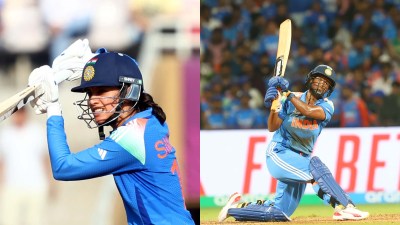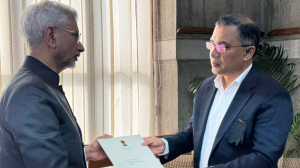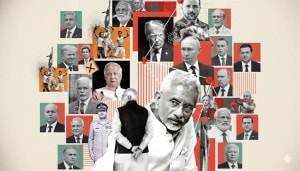Budgeting laurels
Another phase in the lives of our elected representatives has come to a quiet close. And each of the many groups and factions populating t...

Another phase in the lives of our elected representatives has come to a quiet close. And each of the many groups and factions populating the political landscape will probably assess somewhat differently the first budget session of the 13th Lok Sabha, with its 38 sittings and 211 hours of more often than not meandering debate spread over three long months.
Understandably so. Without doubt, it has been a comparatively smooth beginning to the National Democratic Alliance8217;s second innings. Perhaps for the first time in the NDA8217;s relatively short, yet turbulent, parliamentary history, realism eventually prevailed over intra-alliance divergence of views. Realpolitik may have dictated the sudden attempt to table the state reorganisation Bills, and the move by the allies and other political parties to thwart their introduction, but the overall consensus that prevailed augurs well for the country8217;s much voiced desire for a spot of political stability. For the opposition, however, the report card is less glowing, with the main opposition party, the Congress, at various points flaunting its inability to evolve a coherent line on critical issues facing India.
Besides citing the 26 pieces of legislation that his government managed to have passed, Prime Minister Atal Behari Vajpayee8217;s team can point to their resoluteness in sticking to the proposed cuts in subsidies. By refusing to entertain vociferously demanded rollbacks in subsidy withdrawals for foodgrains in the public distribution system and in fertilisers, the government has raised hopes that it may yet embark on the second generation of reforms. But these are hopes that would once again be belied unless the NDA coalition repeatedly demonstrates a still tenuous resolve to think long-term and eschew shortsighted populism. This is an arena where the Congress was found sorely wanting. While its leadership took to the streets to protest price rise while the parliamentary forum was still open, Manmohan Singh reiterated a need to reassess subsidies. It8217;s the kind of confusion the party can ill afford if it wants to galvanise its decidedly despondent rank and file. That this came hot on the heels of the much-awaitedand once-postponed Vajpayee-Sonia Gandhi confrontation did not help any.
That Vajpayee8217;s widely acknowledged eloquence would win him that round was expected, but by being stymied on her nuclear perspective, Sonia Gandhi highlighted the crying need in the Congress to give visionary substance to street demonstrations and to entertain claims to being a constructive opposition.
However, this was a budget session that saw MPs knocking down all political barriers and forging instantaneous agreement on self-gain. Lavishing themselves with increased perks, they also thrilled in prospects of permanent residence in Lutyen8217;s Delhi8217;s leafy environs when the parliamentary committee on housing mooted apartment blocks for formerly elected representatives who are no longer electable. It may be only a proposal till now, but despite the Information Technology Bill being passed, despite the evolving consensus on the diplomatic challenge posed in Sri Lanka, it is this image of a self-obsessed legislative class that stays.
- 01
- 02
- 03
- 04
- 05































